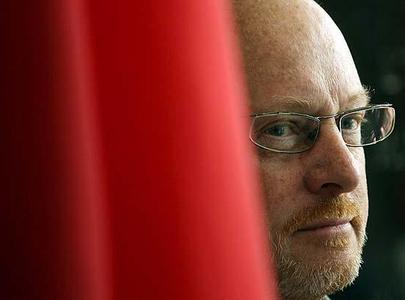During the waning days of the Canadian listeria outbreak, a Canadian academic-type sent me a love letter, which said,
.jpg) “I did hear awkward remarks about your organisation from several microbiologists I know. Your comments in CB confirmed what I heard. I heard other comments you made recently on the listeria outbreak, appalling, very poor comments. Please refrain making further comments, at least publicly. You are hurting our profession.”
“I did hear awkward remarks about your organisation from several microbiologists I know. Your comments in CB confirmed what I heard. I heard other comments you made recently on the listeria outbreak, appalling, very poor comments. Please refrain making further comments, at least publicly. You are hurting our profession.”
I guess if your profession is kissing the ass of industry and the federal government while people die and pregnant women risk miscarriage, then yes, I’ve been harming your profession.
But now, the Canadian Food Inspection Agency has taken to echoing the concerns – the “very poor comments” – that I have stated since the beginning of the listeria outbreak in Aug. 2008.
Robert Cribb of the Toronto Star wrote on Wednesday that,
The Canadian Food Inspection Agency could have done a far better job communicating with the public during this summer’s listeria outbreak, a top official at the federal agency concedes.
"There’s been a lot of hard questions asked … in terms of how we can get information to the public in as timely a way as possible," said Dr. Brian Evans, CFIA executive vice-president and chief veterinary officer of Canada. "I accept the criticism that there is a need for us to reflect and to do a much better job of informing (Canadians)."
.jpg) Oh Brain Evans, where were you in August?
Oh Brain Evans, where were you in August?
As I’ve written many times before, if Canadian cattle or chickens get sick, the public is told all about it. ??????If Canadian people get sick, not so much.
Cribb also writes that one CFIA initiative that will help in that regard is a newly formed advisory panel comprised of four prominent food safety experts. The panel will consult with the CFIA on best practices and possible changes to existing protocols.
That may help with listeria testing protocols but I can’t see how it will help with communications; especially since CFIA hasn’t announced who is on this advisory panel and what it is they will do. If you really want to do better, CFIA, don’t talk about it, do it. Oh, and clearly articulate your policy on when to go public about foodborne illness outbreaks. And warning labels.
My friend, Harshavardhan Thippareddi, a listeria expert and associate professor of food science at the University of Nebraska, was also quoted in the Star story, saying,
"While food safety should be the responsibility of individual companies, the regulatory agencies have the responsibility to verify that the food safety of the products produced is assured. Thus, the regulatory agency can, and I believe should, require companies to share any and all data that pertains to any safety issue, in this case listeria testing results."
.jpg) Amen.
Amen.
Oh, and to the author of the love scribble, awkward doesn’t begin to describe things. Amy and Ben and others around me are saints. But at least I am willing to state my evidence-based opinion publicly, with my name attached.
 He graduated from the University of Guelph with a bachelor of science in agriculture in 1974 and a doctor of veterinary medicine in 1978.
He graduated from the University of Guelph with a bachelor of science in agriculture in 1974 and a doctor of veterinary medicine in 1978.


 also served as the CFIA’s executive vice-president in Ottawa since 2007, was named to the additional post Tuesday by Prime Minister Stephen Harper.
also served as the CFIA’s executive vice-president in Ottawa since 2007, was named to the additional post Tuesday by Prime Minister Stephen Harper. “There’s been a lot of hard questions asked … in terms of how we can get information to the public in as timely a way as possible. I accept the criticism that there is a need for us to reflect and to do a much better job of informing (Canadians)."?
“There’s been a lot of hard questions asked … in terms of how we can get information to the public in as timely a way as possible. I accept the criticism that there is a need for us to reflect and to do a much better job of informing (Canadians)."?.jpg) “I did hear awkward remarks about your organisation from several microbiologists I know. Your comments in CB confirmed what I heard. I heard other comments you made recently on the listeria outbreak, appalling, very poor comments. Please refrain making further comments, at least publicly. You are hurting our profession.”
“I did hear awkward remarks about your organisation from several microbiologists I know. Your comments in CB confirmed what I heard. I heard other comments you made recently on the listeria outbreak, appalling, very poor comments. Please refrain making further comments, at least publicly. You are hurting our profession.”.jpg) Oh Brain Evans, where were you in August?
Oh Brain Evans, where were you in August?.jpg) Amen.
Amen.